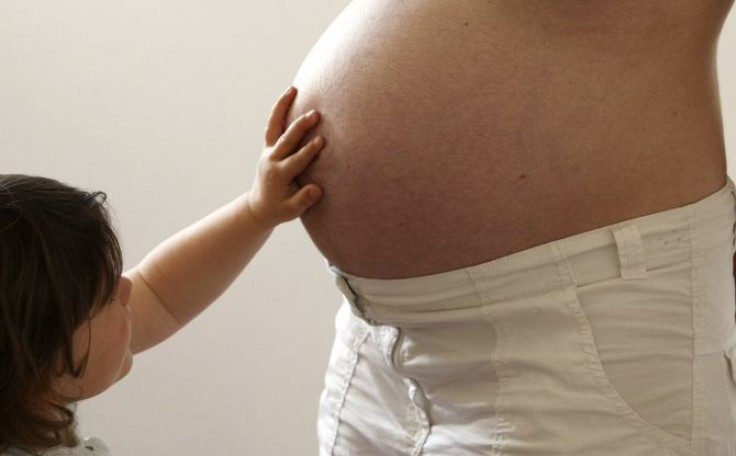Study: Lose Weight Before Pregnancy

It’s not just about eating right during pregnancy but also about weighing right says a new University of Illinois study.
The study warns about the adverse effects of maternal obesity on the fetus. The researchers say that even if the mother eats healthy during the pregnancy, the baby will develop in an ’unhealthy environment’ that places the infants at risk for future health problems.
“We can see that fat sequestered in the placenta of obese mothers when it should be going to the baby to support its growth. The nutrient supply region in the placenta of an obese mother is half of the size of that of a normal-weight mother, even when both are eating the same healthy diet,” said Yuan- Xiang Pan, professor of nutrition at University of Illinois.
The study was conducted on animal models. The researchers studied the placenta of obese pregnant rats and compared them to the placenta of rats that were obesity resistant. All the rats in the study were kept on the same healthy diet.
“Although the obese females didn’t gain much weight on the healthy diet, the obesogenic environment remained, and it affected nutrient transport regulation in the placenta,” he said.
Obesogenic environment includes increased triglycerides, high levels of the hormone leptin, and elevated amounts of non-esterified fatty acids (NEFA) circulating in the obese expectant mother’s body.
Pan said that triglycerides and NEFA levels were nearly twice as high in obese mothers even when they consume healthy diets during pregnancy.
“My advice is, lose weight well before you become pregnant,” Pan said.
Obese mothers gave birth to babies that were 17% smaller than they should have been.
The researchers were able to demonstrate, for the first time that the DKK1 gene regulates certain aspects of lipid metabolism in the placenta through the WNT signaling pathway.
Many studies have shown that maternal obesity poses a serious health concern for the fetus.
A study conducted at St. Mary’s Hospital in London that involved 287,213 pregnancies found that maternal obesity carries significant risks for the mother and fetus. The risk increases with the degree obesity.
“Maternal obesity is associated with an increased range of structural anomalies, although the absolute increase is likely to be small,” wrote Judith Rankin in a study published in the Journal of the American Medical Association.
Maternal obesity can also lead to pre- term deliveries. Some 187,290 women in Scotland were studied for association between maternal body mass index and risk of preterm delivery.
The researchers found that obese and first-time mothers were at substantial risk of having pre-term deliveries and that the chances of having a stillbirth were very high. If born alive, the child was most likely to face long-term disability.
Studies have shown that maternal obesity increases risks of the baby having a heart defect, autism, spina bifida (split spine), diabetes and other congenital defects.
“Obesity during pregnancy is now a common condition affecting approximately 1 of 5 pregnant women,” states CDC.
“The point I’d like to get across to woman of child-bearing age is that they must pay attention to their weight well before they become pregnant if they want to have a healthy baby. Obesity creates unhealthful conditions in the mother’s body that can take time to correct. A healthy mother will give birth to a baby that is more resistant to disease,” Pan said.
The study appeared in the March 2012 issue of Biology of Reproduction.



























